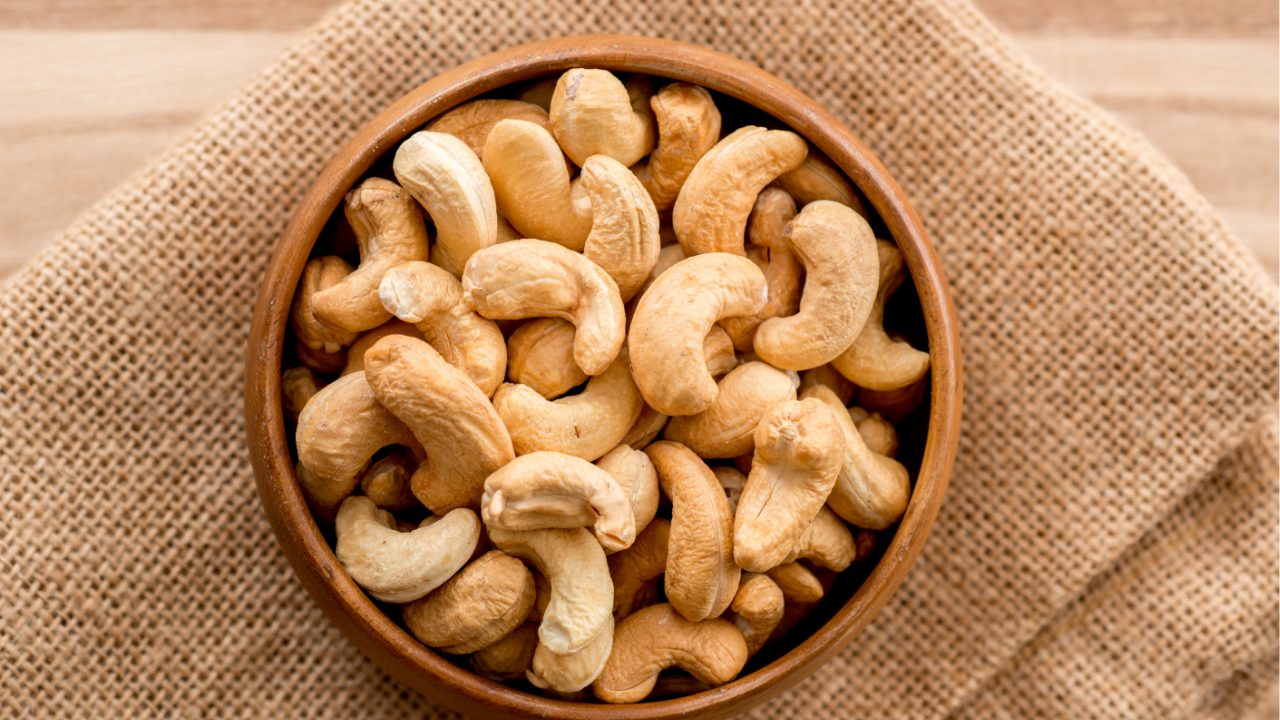Cashews are a popular snack and ingredient known for their creamy texture and rich flavor. But beyond their taste, many people wonder whether cashews are beneficial to their health. In this article, we will explore ten compelling reasons why cashews can be a healthy addition to your diet.
Are Cashews Good for You?
1. Nutrient-Dense Profile
Cashews are packed with essential nutrients, including vitamins E, K, and B6, as well as minerals like copper, phosphorus, zinc, magnesium, iron, and selenium. These nutrients play crucial roles in maintaining overall health and well-being.
Incorporating cashews into your diet can help ensure you meet your daily requirements for these vital nutrients. For example, the high levels of magnesium in cashews support muscle and nerve function, while the iron content helps prevent anemia by aiding in the production of healthy red blood cells.
2. Heart Health
Cashews contain monounsaturated and polyunsaturated fats, which are known to promote heart health. These healthy fats help reduce bad cholesterol levels and increase good cholesterol levels, reducing the risk of cardiovascular diseases.
Regular consumption of cashews has been associated with a lower risk of heart disease. The presence of antioxidants like vitamin E and certain phytosterols also contributes to their heart-protective effects by preventing oxidative damage and inflammation.
3. Weight Management
Despite being energy-dense, cashews can be a beneficial part of a weight management plan. Their combination of protein, fiber, and healthy fats helps promote satiety, making you feel full longer and reducing the likelihood of overeating.
Studies have shown that individuals who include nuts like cashews in their diet tend to have a lower body mass index (BMI) and a healthier weight. The moderate calorie content and the presence of metabolism-boosting nutrients also support weight control.
4. Bone Health
Cashews are a good source of minerals like calcium, magnesium, and phosphorus, which are essential for maintaining strong and healthy bones. Magnesium, in particular, plays a significant role in bone formation by influencing the activities of bone cells.
Including cashews in your diet can help prevent bone-related disorders such as osteoporosis. The presence of vitamin K in cashews also contributes to bone health by regulating calcium deposition and promoting bone mineralization.
5. Eye Health
Cashews contain antioxidants like lutein and zeaxanthin, which are important for maintaining good vision. These compounds protect the eyes from damage caused by free radicals and harmful blue light.
Regular consumption of cashews can help reduce the risk of age-related macular degeneration (AMD) and cataracts. The presence of zinc in cashews also supports the health of the retina and improves overall eye health.
6. Blood Sugar Control
Cashews have a low glycemic index, meaning they have a minimal impact on blood sugar levels. This makes them a suitable snack for individuals with diabetes or those looking to manage their blood sugar levels.
The fiber and healthy fats in cashews also help stabilize blood sugar by slowing down the absorption of glucose into the bloodstream. Additionally, the presence of magnesium has been linked to improved insulin sensitivity, further aiding blood sugar control.
7. Immune System Support
Cashews are rich in zinc and antioxidants, which play key roles in supporting a healthy immune system. Zinc is essential for the development and function of immune cells, while antioxidants help protect these cells from damage.
Including cashews in your diet can enhance your body’s ability to fight off infections and diseases. The presence of other nutrients like copper and vitamins also supports the immune system by contributing to the production and function of white blood cells.
8. Skin Health
The nutrients in cashews, particularly copper, and antioxidants, contribute to healthy and glowing skin. Copper helps in the production of collagen and elastin, which are essential for maintaining skin elasticity and preventing premature aging.
Regular consumption of cashews can help protect your skin from damage caused by UV radiation and environmental pollutants. The presence of healthy fats also supports skin hydration, keeping it soft and supple.
9. Brain Health
Cashews contain nutrients like omega-3 fatty acids, vitamin E, and magnesium, which are beneficial for brain health. These nutrients help improve cognitive function, enhance memory, and protect the brain from age-related decline.
Including cashews in your diet can support mental clarity and reduce the risk of neurodegenerative diseases such as Alzheimer’s. The presence of antioxidants also helps protect brain cells from oxidative stress and inflammation.
10. Digestive Health
Cashews are a good source of dietary fiber, which is essential for maintaining a healthy digestive system. Fiber helps promote regular bowel movements and prevents constipation by adding bulk to the stool.
Incorporating cashews into your diet can also support a healthy gut microbiome. The prebiotic fibers in cashews feed beneficial gut bacteria, promoting a balanced and healthy gut environment, which is crucial for overall digestive health.
In conclusion, cashews offer a wide range of health benefits, from supporting heart health and weight management to enhancing brain function and digestive health. Including a moderate amount of cashews in your diet can contribute to overall well-being and provide essential nutrients that support various bodily functions.

